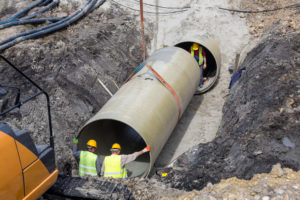
WASHINGTON, District of Columbia, March 14, 2024 –
As we near the end of the first quarter of 2024, INGAA urges Congress to enact energy infrastructure permitting reforms this year. Natural gas and its related infrastructure are critical to meeting our nation’s goals for energy reliability, affordability, and climate security; but we cannot meet those goals without additional pipeline infrastructure.
Current federal permitting processes for new and expanded natural gas pipeline projects remain cumbersome, often stalling projects for years with duplicative reviews, burdensome approvals, and unending legal challenges.
Over the past few weeks, there have been press articles indicating that ongoing discussions between the Senate Committee on Energy & Natural Resources leadership could produce a bipartisan permitting reform proposal that would benefit energy infrastructure. Additionally, the House of Representatives is planning an upcoming week focused on energy legislation, which includes advancing a bill that would improve permitting processes under Section 404 of the Clean Water Act (CWA).
It is heartening to see this renewed focus on this particular portion of permitting reform, but INGAA calls upon Congress to move quickly to introduce and pass legislation that would not only meaningfully address Section 404 of the CWA, but also improve permitting processes under Section 401 of the CWA, establish higher judicial review standards and timelines, and make clarifications to the National Environmental Policy Act (NEPA).
We hope bipartisan permitting reform legislation can be enacted this year to help ensure the development of critical energy infrastructure necessary to deliver energy to Americans and help the United States fulfill our energy, economic, security, and climate-related objectives.
###
INGAA represents the U.S. natural gas pipeline industry. INGAA’s members deliver clean, abundant, affordable natural gas throughout North America and operate approximately 200,000 miles of pipelines that serve as an indispensable link between natural gas producers and consumers.







